Up Your Alley: Punggol’s gleaming waterfront living steeped in rustic charm
From crab-hunting and carnivorous plants to a school teaching dogs how to paint and play music, Punggol has plenty to appeal to those who love wildlife and nature, as CNA finds out in this latest instalment of Up Your Alley, our crowdsourced series on hidden gems in Singapore neighbourhoods.
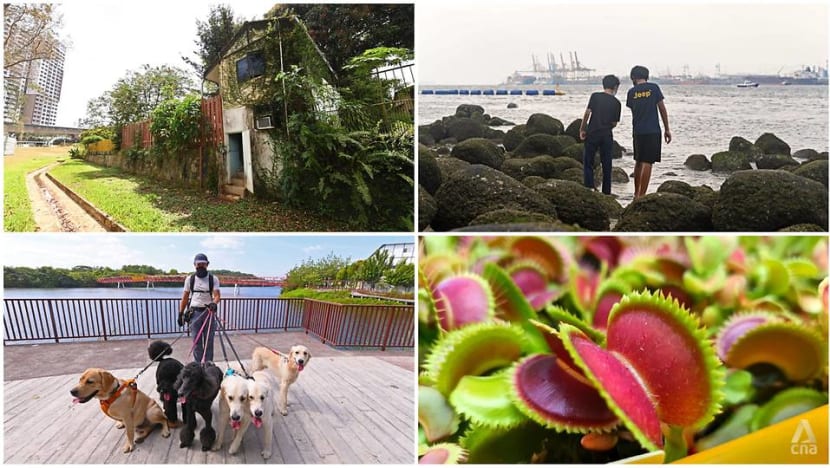
Ponggol Seventeenth Avenue, Punggol Beach, dogs on a walk and a community garden of Venus flytraps - part of a neighbourhood that is not created solely by urban planners, but one that is rich in nature and that has its own seafront heritage. (Photos: Gaya Chandramohan, Try Sutrisno Foo, Darren Ng)
SINGAPORE: It’s easy to think of the Punggol we see today - with its skyline of new HDB housing blocks and construction cranes - as the definitive image of that neighbourhood.
It would also be wrong to do so.
The blueprint for Punggol's development as the "waterfront town of the 21st century" was first laid out in 1996.
But before all this, the neighbourhood was a rustic fishing village, which gave way to pig farms and plantations when more Chinese immigrants arrived.
And remnants of this past can still be seen, according to long-time residents like retired pilot Melvin Yeo, who remembers how the smell of pig farms would waft through the then-undeveloped estate. Or that the sea came right up to the doorstep of the houses of yesteryear, with residents able to moor their boats right in front of their homes.
He was among the residents who showed us around Punggol old and new, taking us beneath the surface of a town seemingly etched out of construction blueprints and artist impressions.
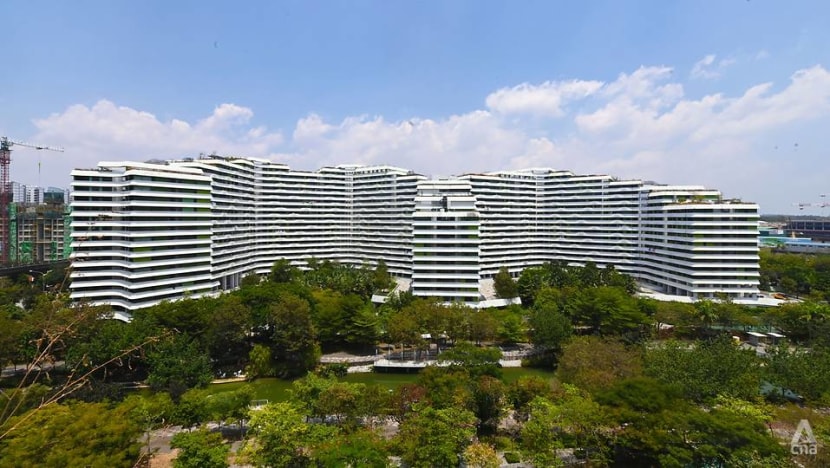
WHERE THE SEA USED TO BE
Parked in a quiet enclave near Punggol Jetty is the neighbourhood simply known by its street name, Ponggol Seventeenth Avenue. It is also home for the past 26 years to Melvin, his wife and two daughters.
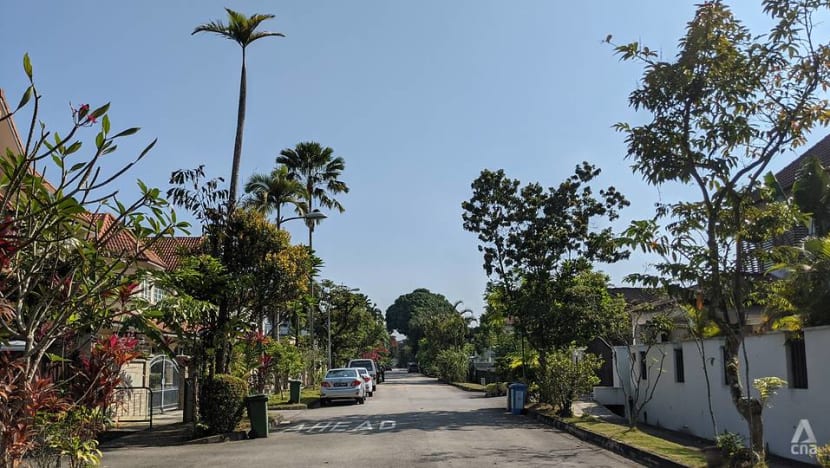
The neighbourhood then was rustic and isolated, with only a single road serving the estate - traits that first attracted the family when house-hunting, the 62-year-old told CNA.
"The nearest civilisation (was) at Hougang and that is how far we’ve to drive to go and buy things (in the earlier years)."
He added that, at the time, the estate's bungalows were owned mostly by companies as holiday homes for their employees, given its proximity to the sea.
Showing us around, the long-time resident pointed out a house near the road leading into Ponggol Seventeenth Avenue today.
The shorefront used to be here, he said, and this bungalow still had an "outhouse" - a structure where its residents could wash up before entering the house, after berthing their boats.
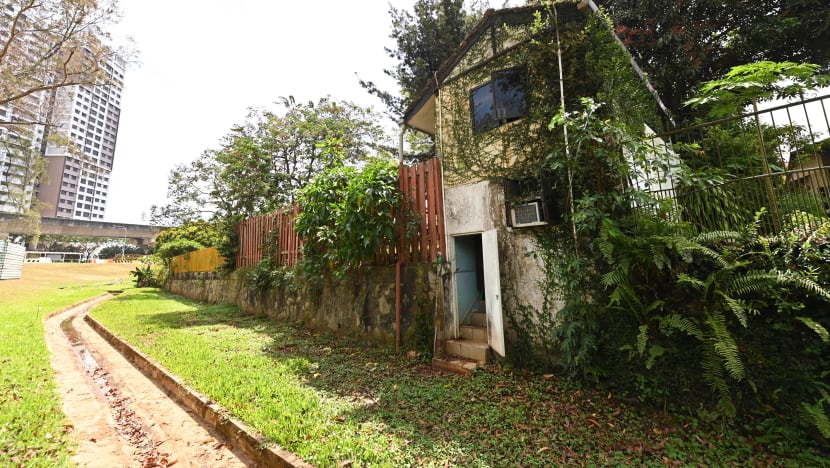
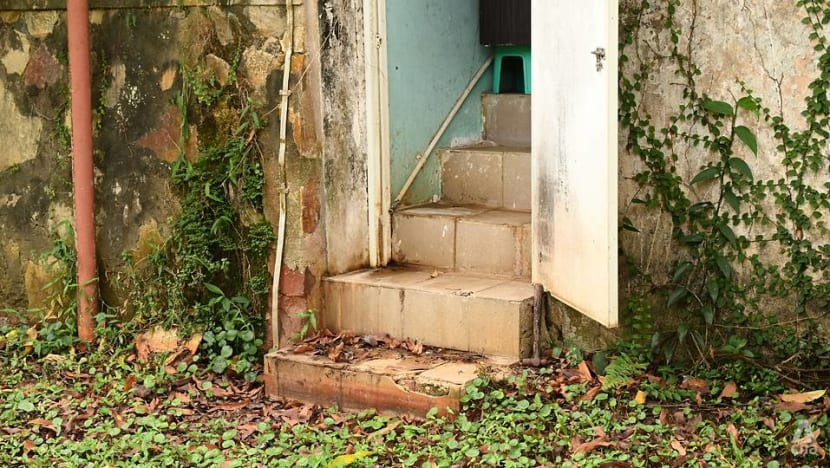
For residents, seafront living was part of everyday life as recently as the early 1990s, he said, citing the example of a colleague who lived in the neighbourhood at the time.
They also had a group of unlikely neighbours - seminarians who studied and lived at the nearby St Francis Xavier Major Seminary, which operated from 1987 to the end of 2015.
During those years, the seminarians would each spend about eight years there, Melvin said, and this allowed his family to get to know them better.
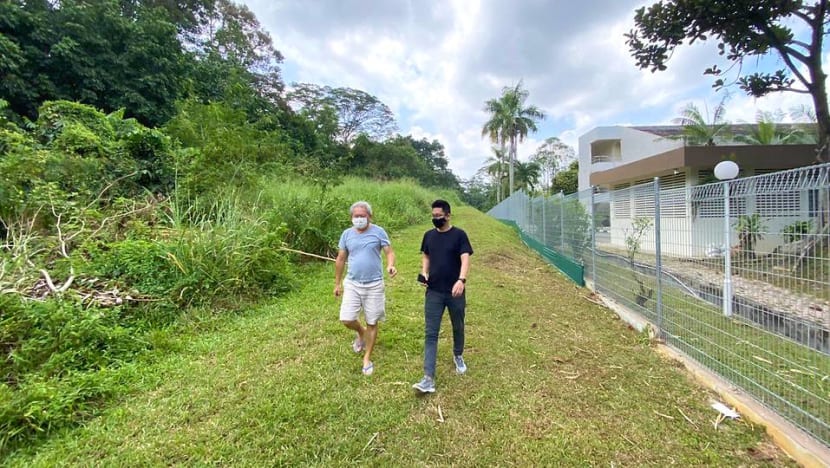
“In the evening, for example, they’d walk along the road doing their rosary and sometimes we’d invite them in to have a drink and chit chat,” he recounted. “My wife likes to cook, and she would occasionally cook for them when they have gatherings or when they’ve certain occasions to celebrate.”
These times helped create a "very close bond" and they even made "lifelong friends" with some of them, he added.
"We actually were quite sad when the seminary decided to relocate."
WHERE DOGS HAVE THEIR DAY
In the same Ponggol Seventeenth Avenue neighbourhood, Joy Chia is busy shepherding her furry "students" into a van used to ferry them for their daily walks.

The mother of three runs Pawsible School for Dogs out of her bungalow there, complete with a curriculum to help teach these furkids to play musical instruments, read and create art.
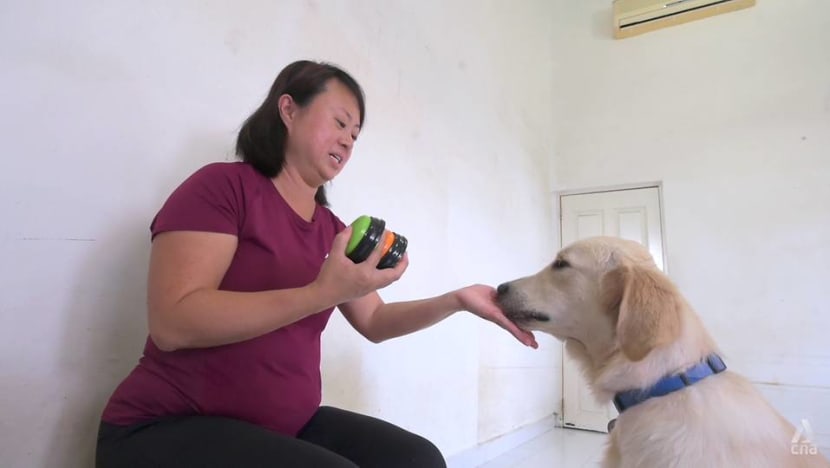
The space - "almost 6,000 sq ft" - was ideal for the dogs to run around and explore, Joy said. She also appreciated how the area was "full of nature" and had diverse flora and fauna.
"I really enjoy the peace and serenity in this environment," she said.
The bungalow is also Joy's home, and there was the inevitable period when she and her family had to adjust, when they moved to Punggol in 2013.
The area had yet to be developed, she said, and there weren’t many people around. Birds, bees and boars were more common sights then.
"I could see troops of monkeys at 3pm, 4pm, roaming around the estate, plucking fruits and eating papaya leaves," she recounted.
It was even difficult to get taxis to go to the estate. Joy said: "I remember that there were some taxi drivers who didn’t want to come in. They actually asked me: 'Are you sure that there are houses in there?'"
At that point, she had just given birth. The isolation of her home added to the complexity of adapting to life as a new mum.
“I remember getting groceries like diapers and milk powder was very difficult because there was no (shopping) mall here. So I had to travel out to Pasir Ris, to Sengkang even, to get my groceries."
Today, they get their necessities from the nearby Waterway Point mall.
Wistful as she was over the lost greenery, she said: "I do appreciate the convenience that the new Punggol has given."
LIVING THE ‘GRAM LIFE
With a tag like “waterfront town of the 21st century” to live up to, it’s fair to say that urban planners for Punggol had their work cut out for them to create a town that’s also aesthetically pleasing.
They didn’t fail to deliver, judging by the shutterbugs who regularly turn up to capture moments of natural beauty.
The red bridge connecting Punggol Promenade and Lorong Halus wetlands has become a prime destination for sunrise and sunset shots.
Weekends would also see visitors enjoying the views amid nature.
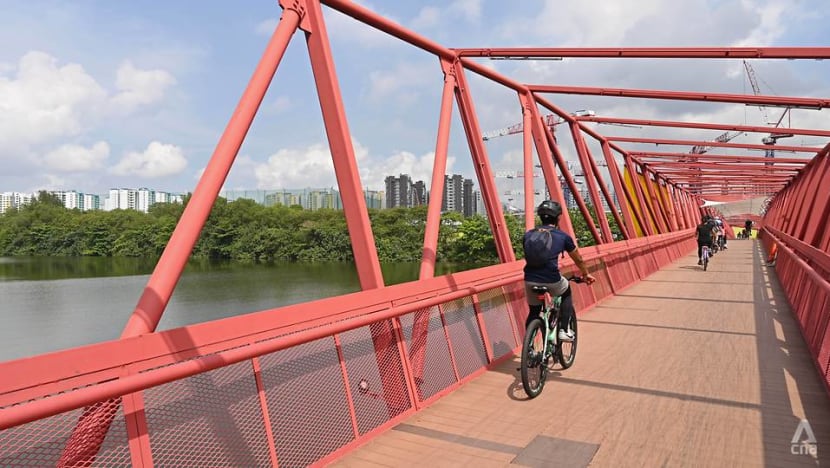
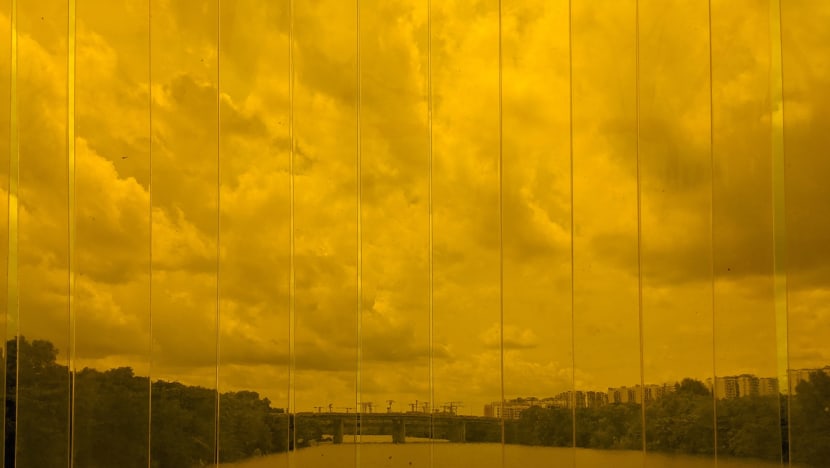
Another place that comes highly recommended is Punggol Beach, a relatively pristine and peaceful beach with views of the Causeway and Malaysia.
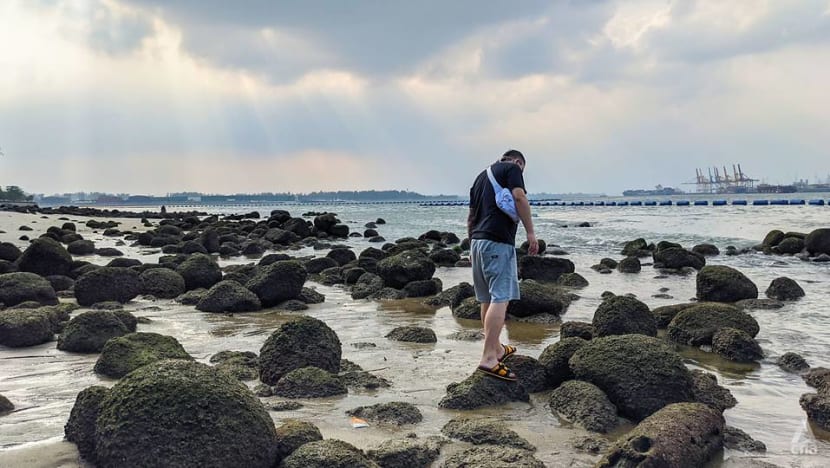
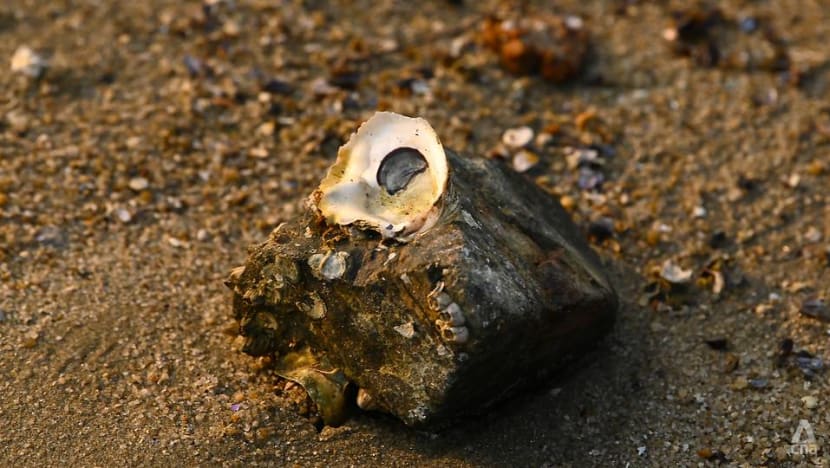
Mimi, who’s from Mizoram, India, and currently works in Singapore, said she enjoys chilling out here with her friends as it reminds them of home.
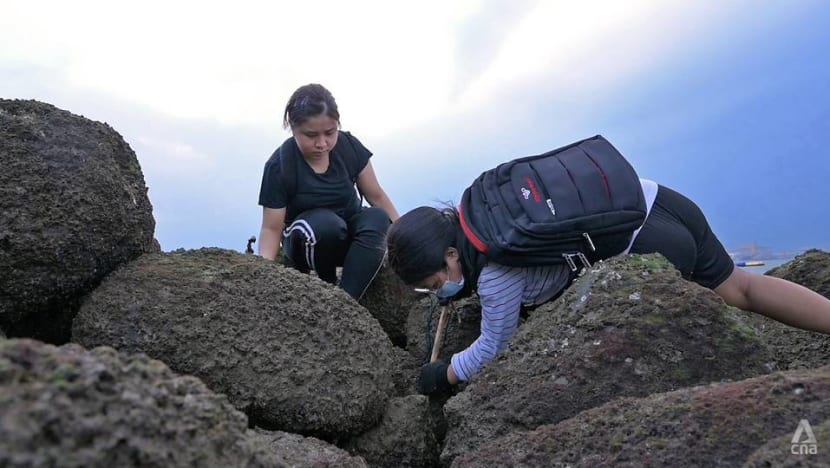
"Some other beaches are just so fancy. This beach is so natural. There are so many stones and we can also find crabs," she told CNA while scrabbling among the rocks for those crabs.
Life’s a beach indeed.
A GARDEN OF VENUS FLYTRAPS
Tucked away in a corner of what's popularly known as Punggol Container Park - its official name is the Social Entrepreneurship and Eco-park Development (SEED) @ Social Innovation Park - is a community garden with a difference. This one is dedicated to carnivorous plants like Venus flytraps.
The green thumb behind the garden is 22-year-old Darren Ng, who has pursued his passion for these plants for years.
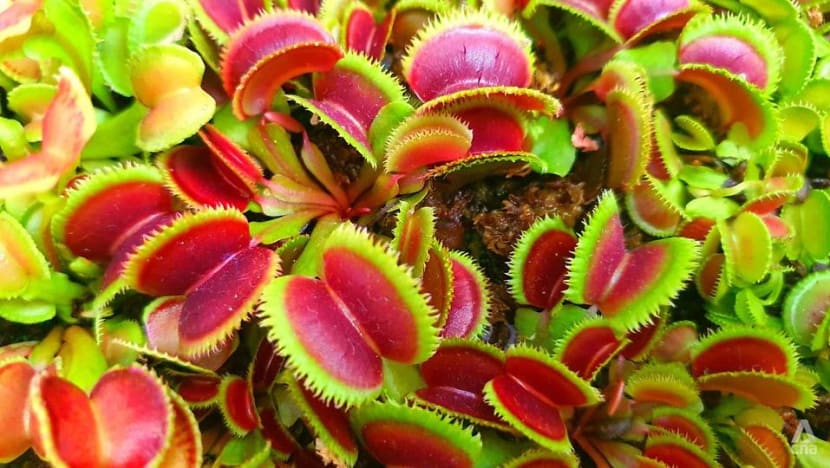
In 2018, this became reality after they took up a plot of land offered by nonprofit group, Social Innovation Park (SIP).
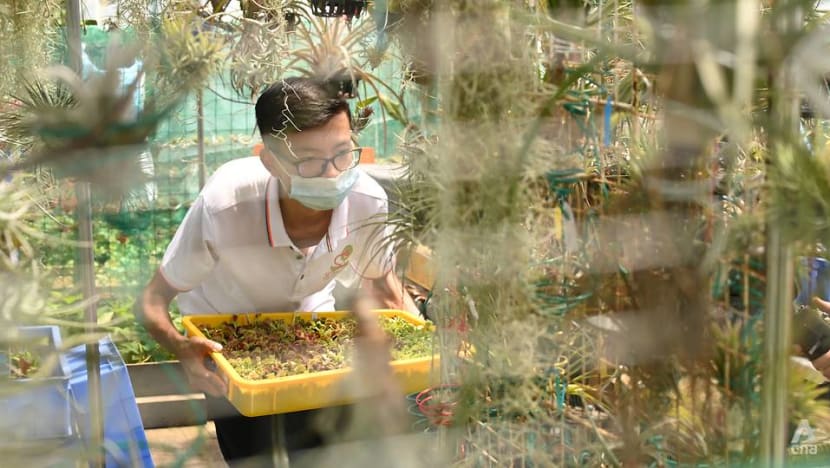
Eight members took on the responsibility of building the farm, from the wooden slats lining the floor to the pipes and overhead cover that shields the plants from the elements.
"It took us three months," said Darren, a National University of Singapore undergraduate, recounting that they would come down to work on building the farm at every free moment.
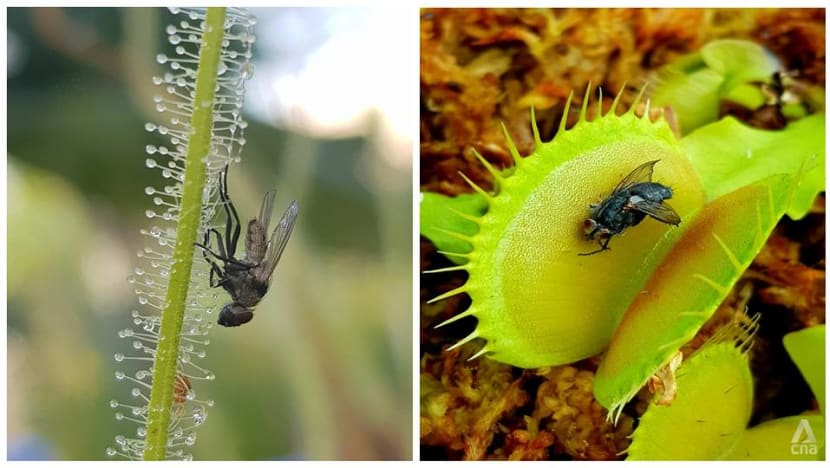
Darren said he appreciates the fact that nearby residents and visitors to the container park could drop in and find out more about the plants he and his community are passionate about.
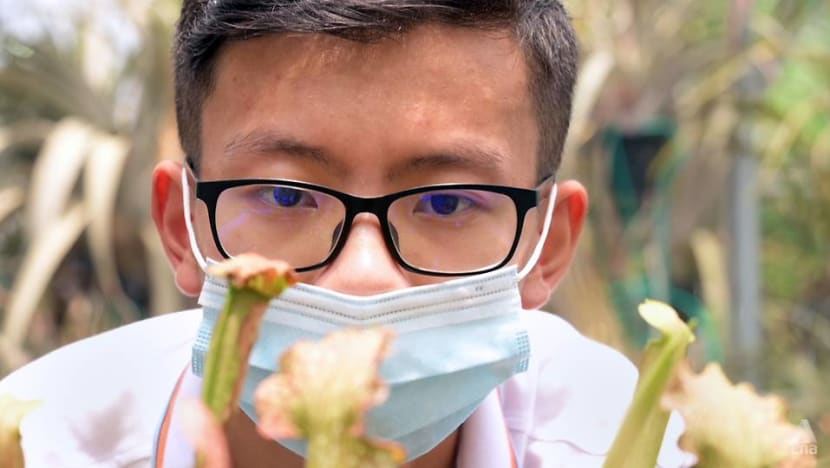
“Members of the public would come down for a stroll, walk their dogs or come down as a group of friends to talk about life, so it’s actually a very peaceful place. And some of (them) actually found interest in this community garden and they’d come and ask about (the plants) and learn,” Darren said.
The eateries at the container park also serve as the team's go-to place for dinner sometimes as they unwind from the day’s exertions, he added.
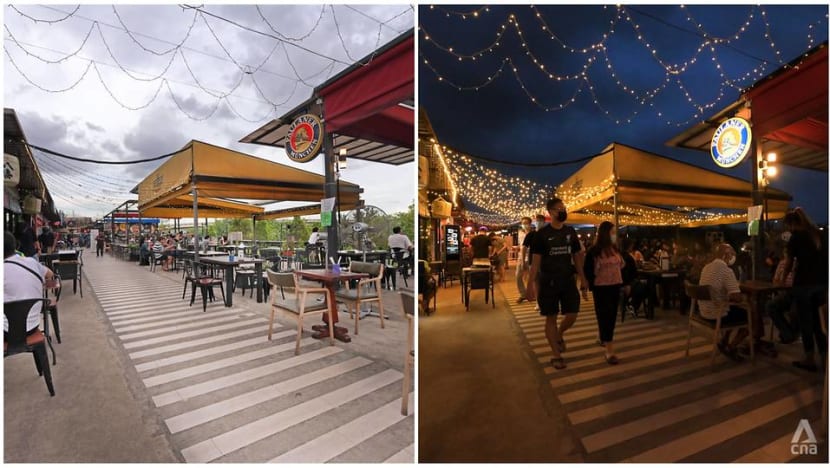
But the SG VenusFlytrap community garden’s long-term future remains up in the air.
Darren said that the lease will expire at the end of this year and it’s unclear if SIP will take back the land or allow the urban farming community there to continue.
Even if the decision is taken to re-claim the land, he hopes that there will be support given to help relocate the community garden.
An SIP spokesperson told CNA in an email that its lease for the land ends at the end of 2021 and that it hopes to extend the lease so that its initial outlay isn't wasted.
"We have adopted the land against the odds of a short lease to put a heart in the heartlands, and we have provided below-market rental rates for our tenants and community despite not receiving any government funding," she said.
She added that if the lease is extended, SIP would be able to act on its "exciting plans" in terms of social impact initiatives and working with social businesses.
FAMILY LIVING NEAR NATURE
Drawn by the promise of a neighbourhood developed for those looking to start their families amid nature, Hazwan Mohamed and his wife plumped for a HDB flat in Punggol after getting married. They moved here in 2018.
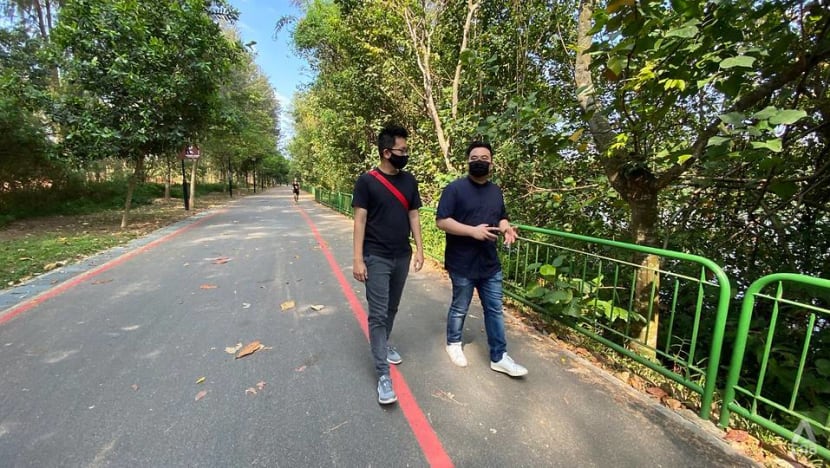
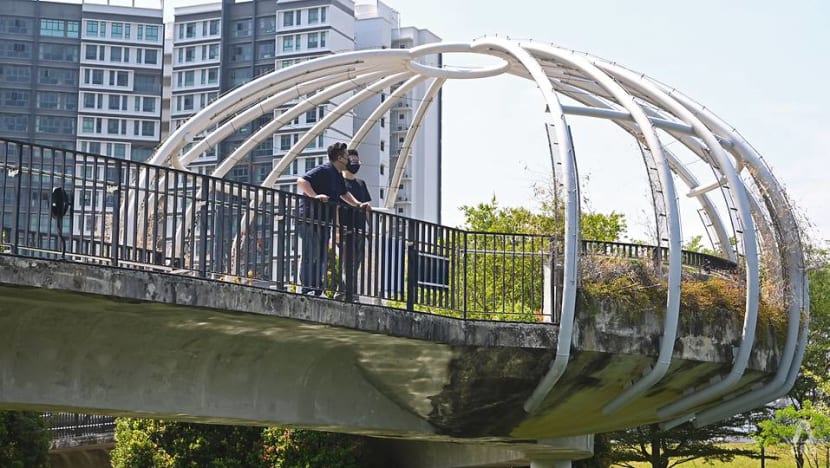
Living in Matilda Court, a still-developing corner at the edge of Punggol, meant that accessibility was initially an issue, the 34-year-old said.
"I still remember when we first moved in, our friends wanted to come over and it's quite funny because a lot of them would be like: ‘I can't find your house ... it's not (on) GPS!’ Even taxi drivers sometimes cannot find where (our house) is."
They were also partially cut off from the park connector linking them to other parts of the neighbourhood, like Jewel Bridge, Punggol Point Jetty and Coney Island, he added.
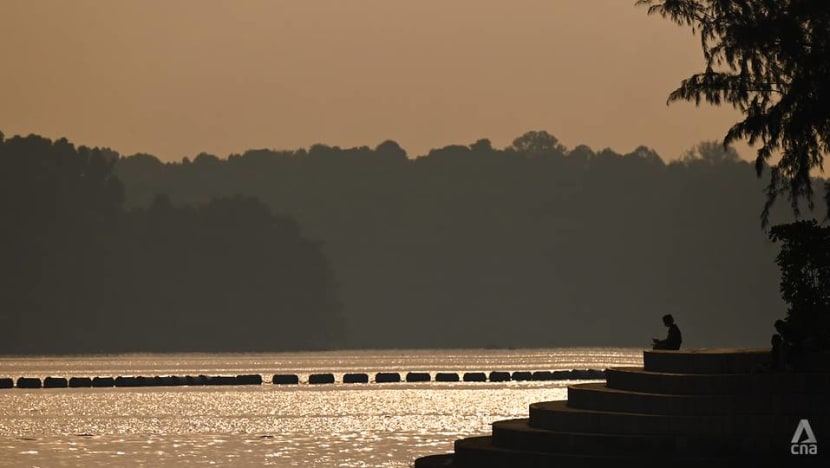
"When we cycled the PCN (park connector network) … there was no connection to Matilda Court area so you had to go down to the underpass of the TPE (Tampines Expressway) and go all the way to the Sengkang area and then come back here," he recounted.
Since then, a new connecting path has given Matilda residents more direct access to the park connector and waterfront areas, he said.
"With your young families and kids growing up, (this will be) a reprieve from your daily lives and from TV and your screens," said the freelance writer, who has a one-year-old daughter.
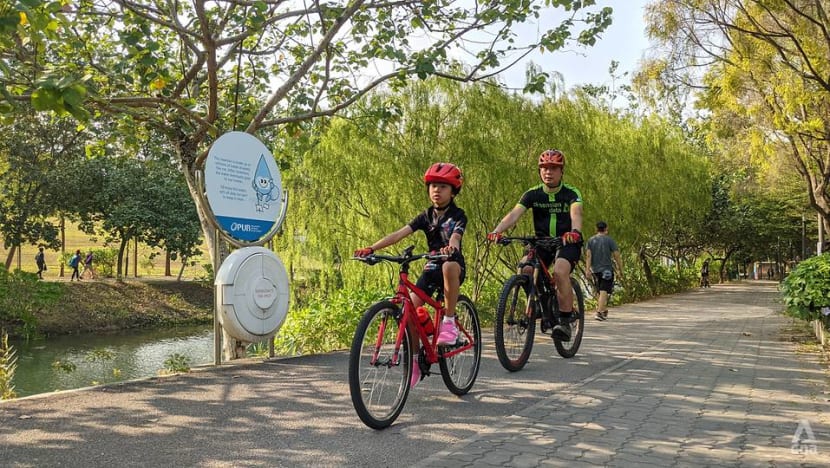
He added that he appreciates how quickly amenities - like a feeder bus service, coffee shops and clinics - have been added to the area.
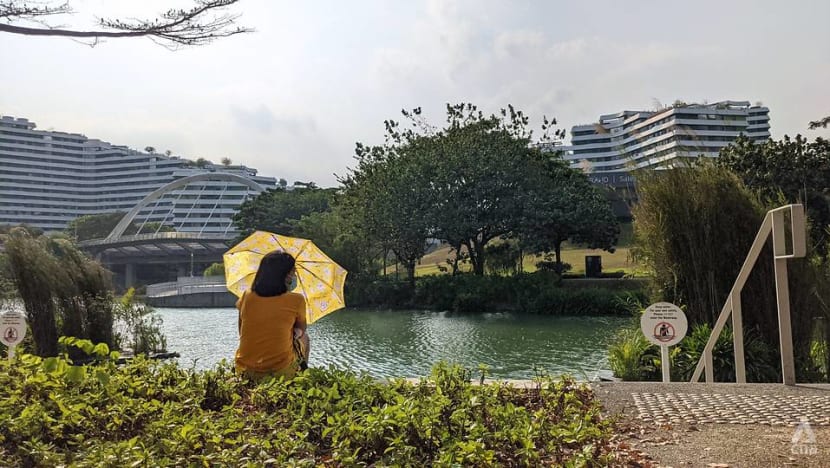
And as the estate grows, he says he can’t wait to discover more of it. "It’s something that I really look forward to as a young parent. I think as Punggol develops more and more, there’ll be more places that we can explore together as a young family."
Now it's your turn. We'd like you to tell us what's Up Your Alley. What is it that makes your neighbourhood unique? What are the places visitors may not notice at first glance, but are a unique and intrinsic part of the estate you know and love?
Write to us at digitalnews [at] mediacorp.com.sg (digitalnews[at]mediacorp[dot]com[dot]sg) or message us on Instagram or Facebook. Tell us about some of your favourite spots or about a person who embodies the spirit of the area.
We look forward to hearing from you!














